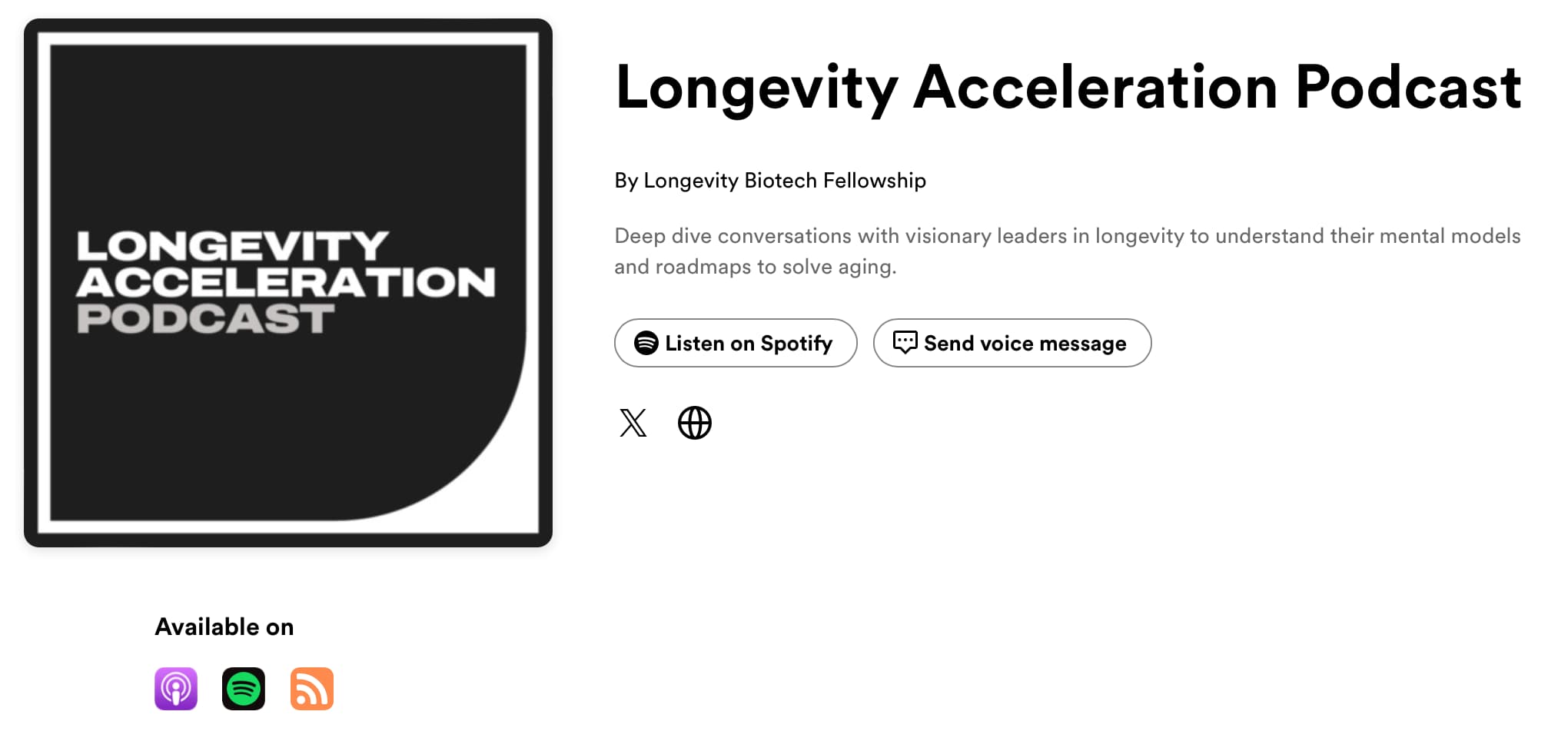In this episode of the podcast, Co-directors of LBF, Nathan Cheng and Mark Hamalainen, interview Alexander Fedintsev, Chief Science Officer at RLE Group, to explore groundbreaking insights into ageing and longevity. Alexander delves into the intricate role of the extracellular matrix (ECM) and long-lived cells in the ageing process, sharing his journey into the field and his research on geroprotectors and ageing mechanisms. The conversation uncovers the complexity of ageing as an interconnected network, addressing programmed ageing and the challenges of repairing damage in non-dividing cells.
Key topics include the impact of ageing on the immune system, the exponential growth of clonal hematopoiesis, and the role of DNA mutations and mitochondria in ageing. Alexander highlights the potential of repairing the ECM for radical longevity, emphasizing the significance of elastin and potential approaches to ECM repair. The discussion also explores the potential of tissue replacement, particularly brain tissue, and the concept of cryopreservation, alongside its challenges and limitations. The episode underscores the need for functional biomarkers of ageing and an engineering mindset in the field. It identifies bottlenecks in ageing research, including the lack of commercial viability and the need for funding and support for bioengineering approaches. The conversation concludes with an optimistic outlook on the rate of progress and the potential for achieving radical life extension in the near future.
In this 1.5-hour episode of the podcast, we dive deep into the cutting-edge world of longevity research with Peter Fedichev, founder of Gero, and Aleksandr Sviridov. The conversation explores the intersection of physics, biology, and aging, offering fascinating insights into the current state and future potential of longevity science.
Key topics discussed include:
- The application of physics tools to understand aging and the importance of a phenomenological approach
- Distinguishing between reversible and irreversible aspects of aging
- Challenges in biological data collection and the shift towards more quantitative approaches
- The potential of large public datasets and plasma proteomics in drug discovery
- Establishing a standard model of aging and identifying variables related to maximum human lifespan
- The limitations of lifespan as a measure of aging and the need for more comprehensive variables
- Potential interventions including pharmacological, cellular, and gene therapies
- Alternative approaches such as organ replacement and cryostasis
- The concept of epigenetic rejuvenation and its challenges
Peter and Aleksandr discuss the need for exceptional talent, funding, and collaboration across fields to accelerate progress in longevity research. They emphasize the importance of prevention alongside repair in addressing aging-related damage.
The episode provides listeners with a comprehensive overview of the current state of longevity science, highlighting both the challenges and the promising avenues for future research. It underscores the need for a multidisciplinary approach, combining insights from physics, biology, and data science to unlock the secrets of aging and potentially extend human healthspan.
